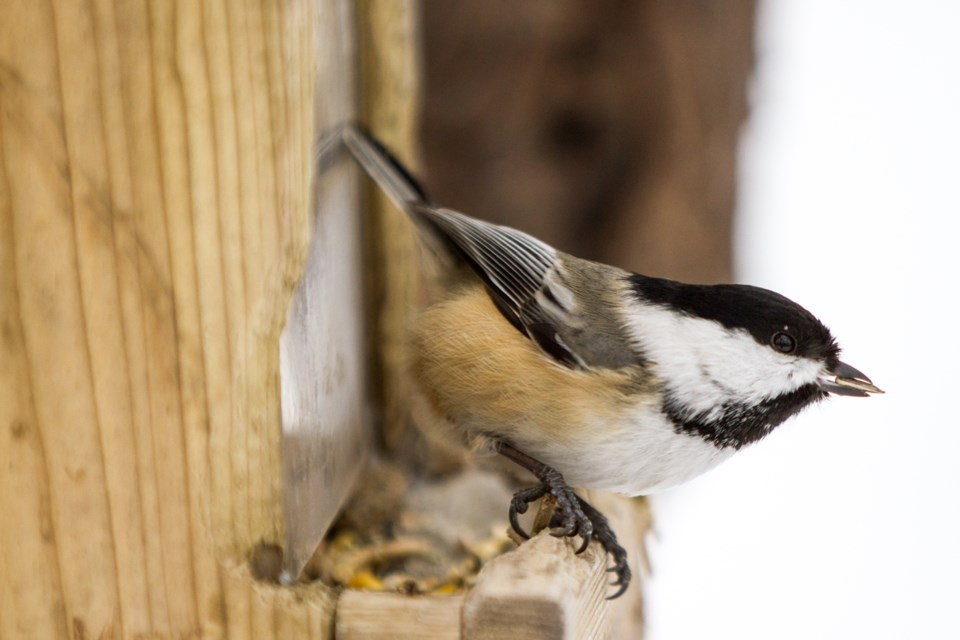BarrieToday welcomes letters to the editor at [email protected] or via the website. Please include your full name, daytime phone number and address (for verification of authorship, not publication).
World Migratory Bird Day (WMBD) is celebrated twice a year to help raise awareness and emphasize the importance of preserving and protecting our migratory birds, their food sources and their habitats.
This year, we are celebrating World Migratory Bird Day on Saturday, May 11. WMBD's slogan is “protect insects, protect birds.”
Barrie officially became a Bird Friendly City on June 16, 2022.
On May 11, Barrie Mayor Alex Nuttall will announce at 11 a.m. at the farmers’ market which bird was chosen by online votes to become Barrie’s official city bird.
When you visit the Barrie Bird Friendly Team’s display, you will have an opportunity to enter a free draw to win a basket filled with bird-related items, a free membership to Nature Barrie, or a parking pass to the Nottawasaga Valley Conservation Authority.
Terrestrial birds that rely mostly on insects for their food sources have declined by an astounding 2.9 billion in the last 50 years. The State of the World’s Birds Report, released every four years, shows globally 49 per cent of bird species are declining and one out of eight is threatened with extinction.
Ninety-six per cent of terrestrial birds rear their young on mostly insects, according to the Smithsonian Migratory Bird Center, University of Delaware.
For example, chickadees need between 5,000 to 9,000 insects, mostly caterpillars, to raise young in one season.
Some of the main reasons for the alarming decline of insects are the widespread use of toxic pesticides, the dramatic increase of mono-culture crops, urbanization and habitat destruction.
Many scientist view a special class of pesticides, called neonicotinoids, used for many years in Europe as well as North America, as the prime suspect in the loss of such a great numbers of insects.
Neonicotinoids have been banned in Europe in 2013 and in North America there is a movement to have them banned.
Although native and non-native plants seem to host a similar number of insects, native trees support more of the caterpillars birds need to feed their young.
If we increase the number of native plants, consequently, we will increase the number of insects on which birds depend, and therefore begin to slow down the declines of both insects and birds.
For example, a native oak tree supports over 1,000 organisms, including 38 species of birds, according to the U.K. Centre for Ecology and Hydrology.
Researchers also emphasize that pollinators improve or stabilize the yield of three-quarters of all crop types and by volume that works out to one-third of global crops.
So, basically, humans as well as most birds need insects to survive and thrive.
Birds provide us with more than a dozen benefits. One of the most important ecological benefits of birds is the fact they play a huge role in the regeneration of forests. When they fly here and there, the tree seeds they have eaten are dispersed through their droppings. The fertilizer from the poop, nitrogen, potassium and phosphorus helps new tree saplings to grow.
Birds are the very best animals we have for controlling unwanted pests that eat our crops. They eat between 400 and 500 million tons of insects every single year. For example, in its lifetime a barn owl may eat more than 11,000 mice and those mice would have consumed 13 tons of crops.
Every year, billions of animals are killed by vehicles and left on roads or roadsides. Vultures consume the bodies of the dead animals and eat everything but the bones. The acid in vultures’ stomachs destroys bacteria.
The easiest action we can take is to plant as many native plants as possible which are food sources for our pollinators, which in turn are food sources for most of our birds.
As well, become actively involved in the community planting of native trees with Living Green.
This Saturday (May 11), Living Green will be involved in tree planting at Pringle Park from 10 a.m. until noon. Their laudable goal is to plant 10,000 native trees here in Barrie.
Gwen Petreman
Barrie



